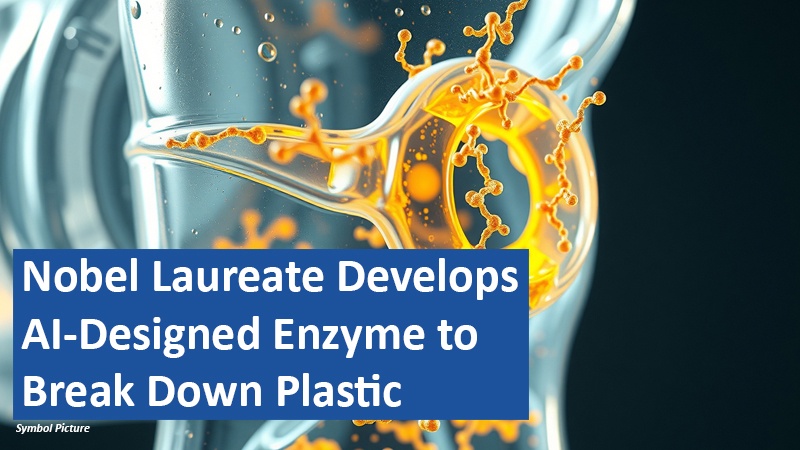
In a groundbreaking development, recent Nobel Prize winner David Baker and his team at the University of Washington have created an enzyme capable of efficiently breaking down plastic. This innovation, powered by artificial intelligence, could revolutionize plastic recycling and help address the global plastic waste crisis.
######################################################
Now exclusively try Amazon Prime and Prime Video free for 30 days!
##########################################################
A New Approach to Tackling Plastic Waste
Plastic pollution is a pervasive environmental issue, with materials like polyethylene terephthalate (PET) persisting in the environment for centuries. Baker’s team has leveraged AI to design an enzyme that specifically targets and breaks down PET, potentially offering a more efficient and cost-effective recycling solution.
AI-Powered Protein Design
Baker, renowned for his work in protein design technology, combines computational methods with laboratory experiments to develop powerful enzymes. His team tested over 300 computer-generated proteins to find the most effective plastic-degrading enzymes.
Potential Impact on Recycling Industry
The newly designed enzymes could significantly improve plastic recycling processes:
- They can break down PET at lower temperatures, reducing energy consumption
- The method is adaptable to different types of plastics
- It could make recycling more economically viable
From Lab to Industry
While still in the development phase, Baker’s team is working to optimize these enzymes for real-world applications. The recycling industry is closely watching this development, as it could represent both an economic and ecological breakthrough.
This innovative approach combining AI and biotechnology offers a new perspective on the recycling problem. As plastic waste continues to accumulate globally, this technology could play a crucial role in more efficiently recycling plastics and reducing environmental impact. The research at the University of Washington provides important scientific insights and offers a concrete perspective for a more sustainable future.
Could this AI-designed enzyme be the key to solving our global plastic waste crisis? How might this technology transform recycling industries and our approach to plastic use? What other environmental challenges could benefit from similar AI-powered solutions?
Based on content from www.focus.de and own research.